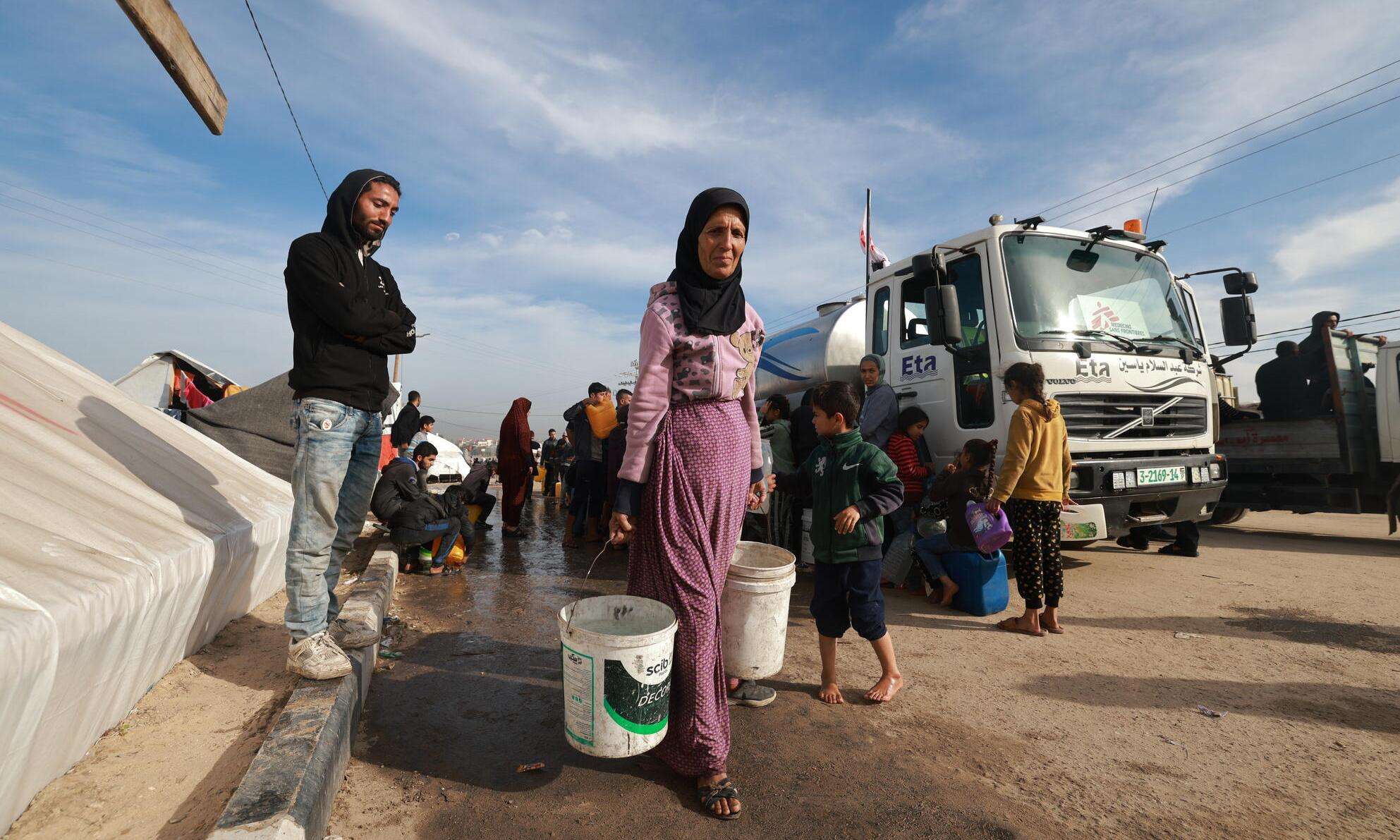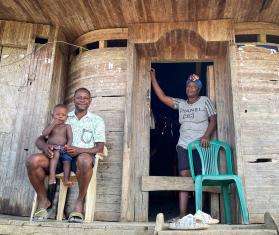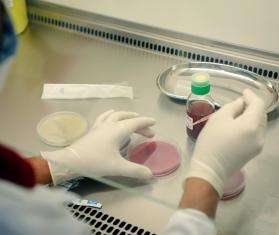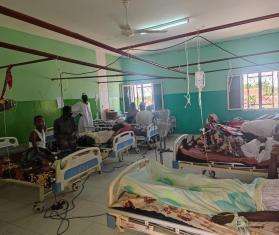The long line is visible from afar: Hundreds of people of all ages, most holding yellow or blue 40-liter jerrycans as they crowd around a water truck in Rafah, a town by the border between Gaza and Egypt.
Some live in tents close by; others live in shelters several kilometers away and brought wheelchairs, dollies, shopping carts, or even strollers to carry what water they can get back to their shelters. One visually impaired man was led by his young daughter as he carried the water away. They had walked two kilometers to get to Rafah because there is no clean water in Al-Mawasi, the coastal area where they are living.
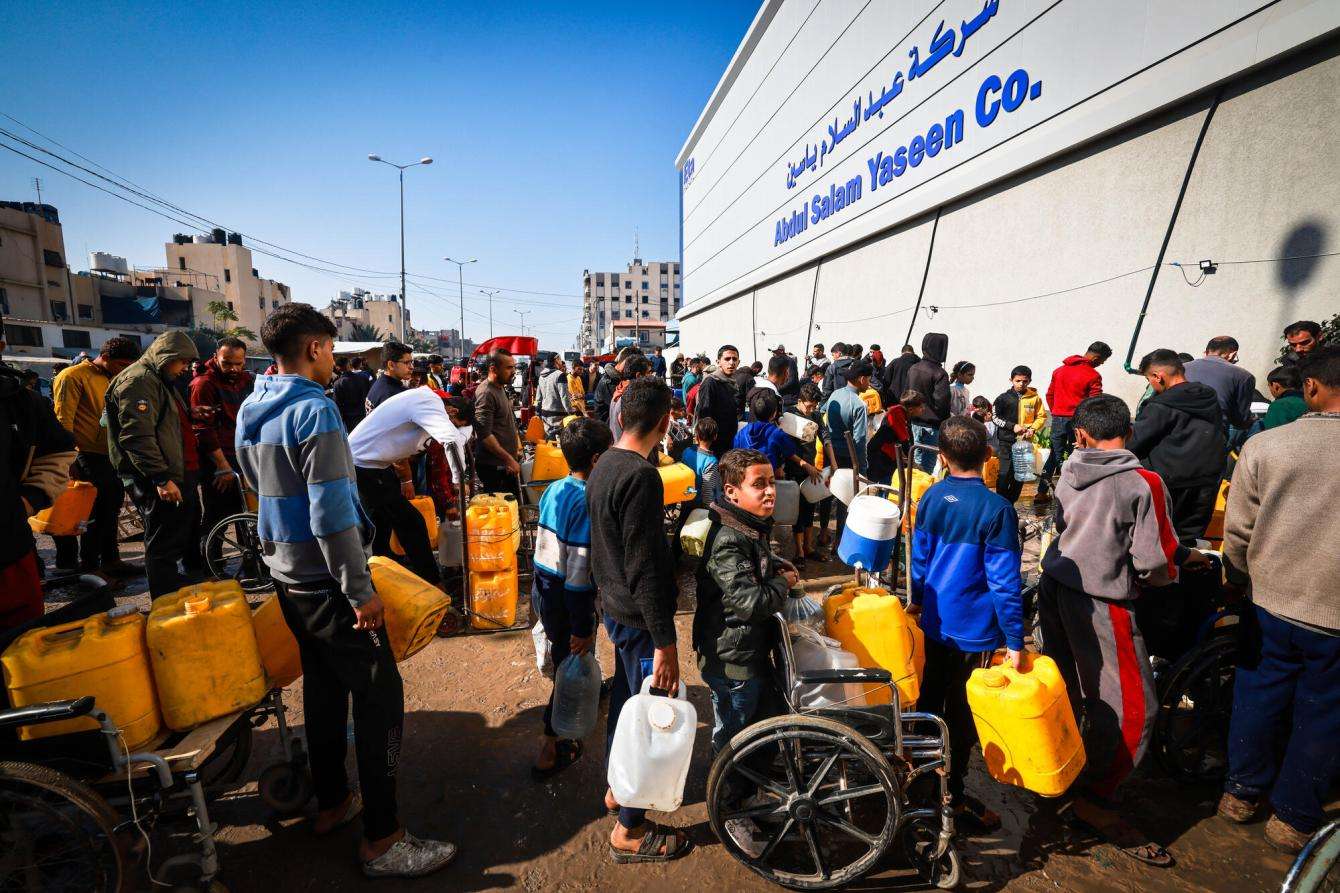
Since the war began in Gaza four months ago, little infrastructure has been spared by relentless airstrikes, including water pipes. At least half of the water and sanitation facilities in Gaza have been destroyed or damaged, according to UNICEF, while UNRWA reports that 70 percent of the population is resorting to drinking salty or contaminated water, putting their health at risk.
To respond to some of the most urgent needs of displaced Palestinians in Rafah, Doctors Without Borders/Médecins Sans Frontières (MSF) teams started a water distribution program in December 2023. But restrictions on the flow of supplies into Gaza are standing in the way of getting people enough water to meet their needs.
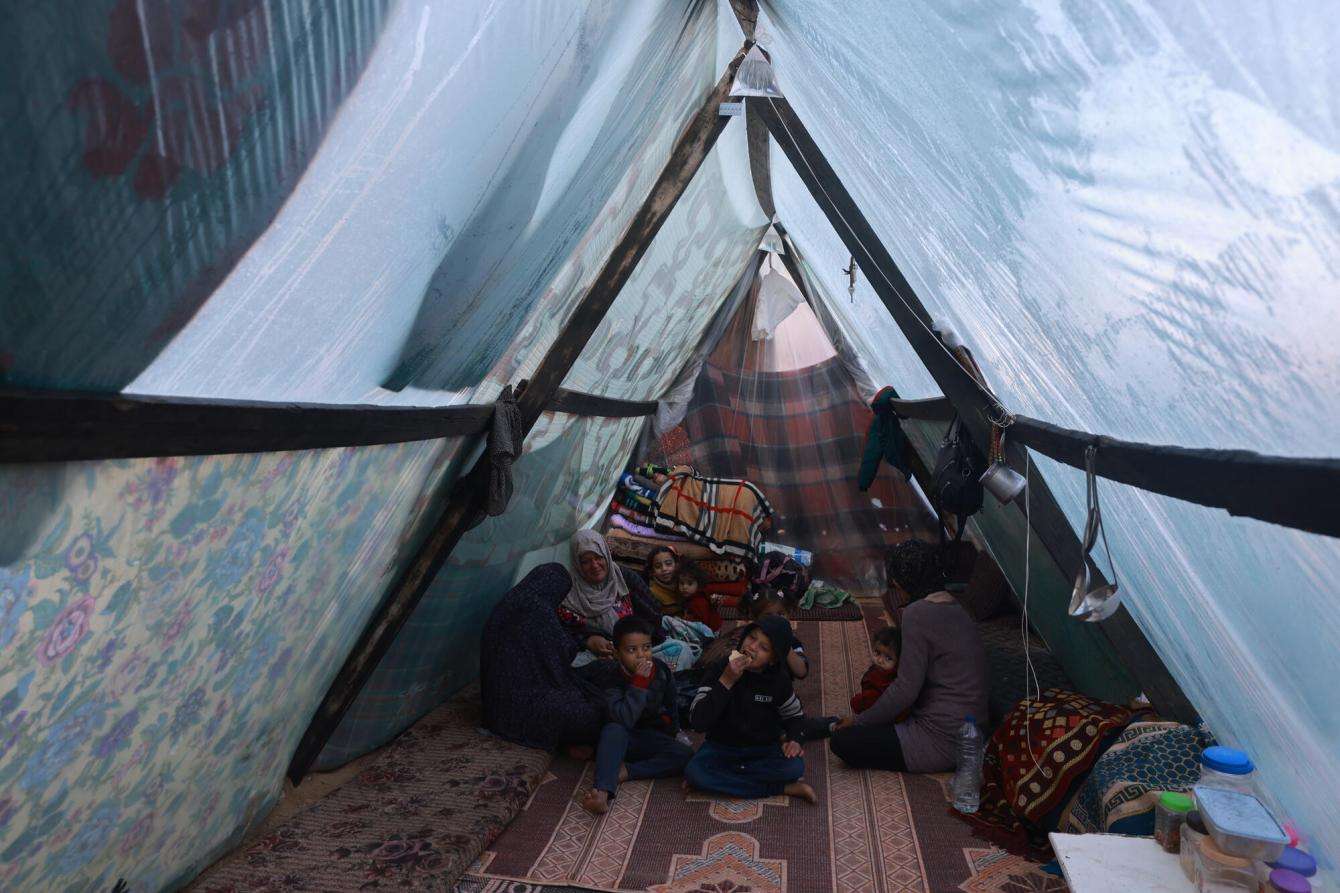
Health risks of the Gaza water crisis
Rafah was once a town with a population of 300,000, but now it hosts 1.5 million displaced people from all over Gaza. For everyone, it’s a struggle to find clean water for drinking, cooking, and washing. The cold, rainy winter weather has made living conditions even more desperate, with heavy puddles of mud and rainwater seeping through the flimsy plastic coverings of tents. Access to hygiene is severely limited, without enough toilets, showers, and sewage systems in the overcrowded area. According to UNRWA, there is one toilet for every 480 people.
“Due to the lack of clean water for drinking and other needs, patients are suffering from intestinal disorders and the flu virus, which is circulating widely,” said MSF health promotion manager Mohammad Abu Zayed. “Lately, we’ve also witnessed children suffering from skin rashes due to the lack of clean water for bathing or washing.”
Other health risks include dehydration and hepatitis A. "The lack of clean water can lead to illnesses like diarrhea and skin diseases, and can also lead to dehydration," said MSF medical advisor in Gaza, Marina Pomares. It also affects personal hygiene, increasing the risk of infection. "The effects are worse in children, who have weaker immune systems than adults and are more exposed to diseases and allergens," she said.
MSF teams are providing basic health care in two locations in Rafah. At MSF’s Al-Shaboura clinic and Al-Mawasi health post, nearly 30 percent of morbidities our teams are currently seeing in patients under five years old are diarrhea or skin diseases. In recent weeks, our teams in Rafah have also received 43 patients with suspected hepatitis A. These medical conditions are all related to the shortage of clean water and are compounded by the lack of functioning medical facilities in the area.
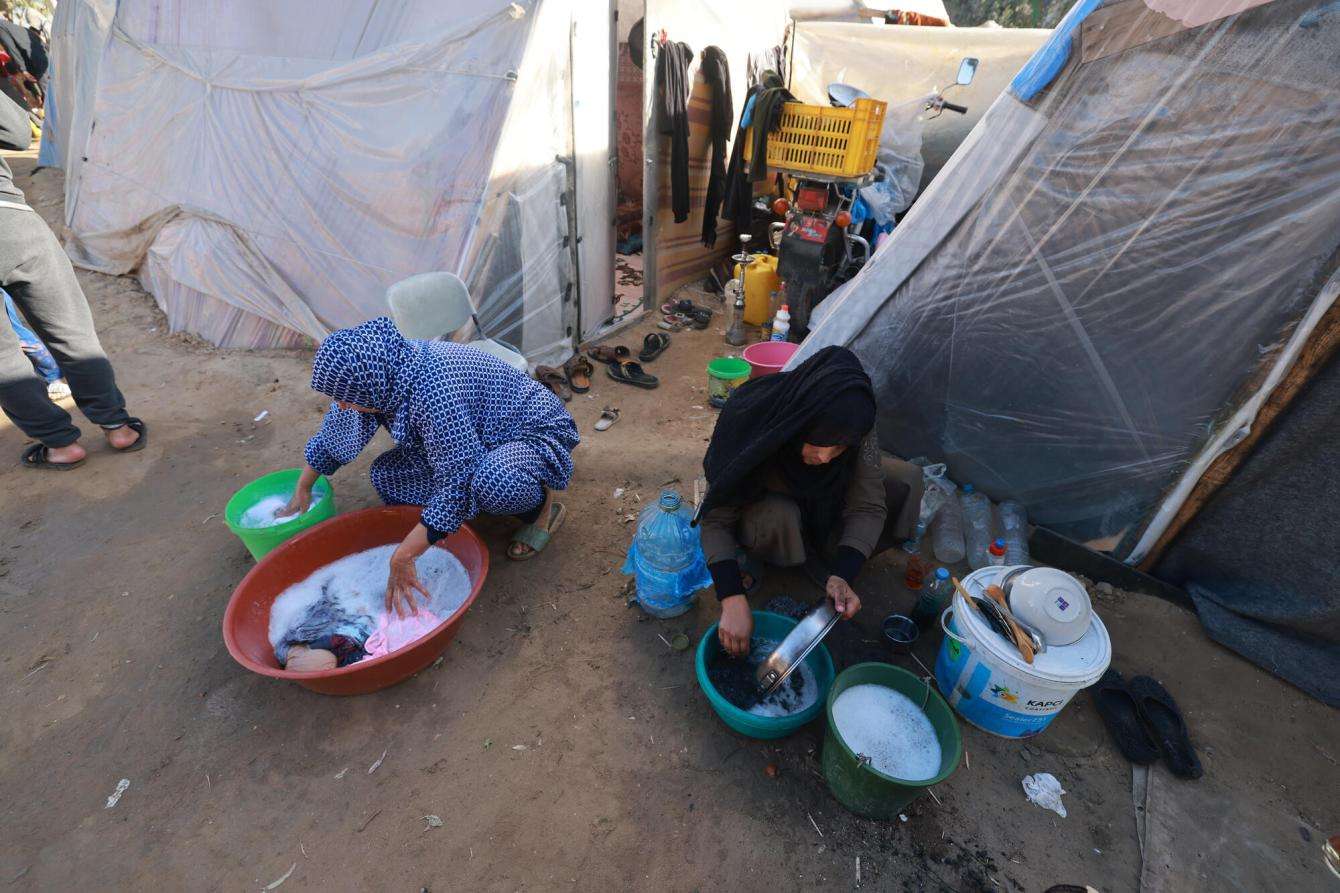
Restrictions stand in the way of getting enough water into Gaza
Today, MSF water and sanitation teams are providing an average of about 30,000 gallons of safe drinking water per day to 20,000 people. But this is nowhere near enough water to go around. “In a normal situation, one person needs two to three liters [slightly more than half a gallon] of drinking water per day,” said MSF water and sanitation agent Youssef Al-Khishawi. “Now, with the current shortage, the average for one family of six is one gallon of water.” In other words, the average person in a family of six gets about one-tenth the amount of water they need per day.
"We stand in lines to get water,” said Hanin, who fled her home in Gaza City in the early days of the war due to shelling and is now sheltering in Rafah. Like most people in town, she struggles to get hold of enough food, water, and other essentials. “If we get some water, we will use it for washing and dishwashing, and if we can’t get any water, we will wait for the next day.”
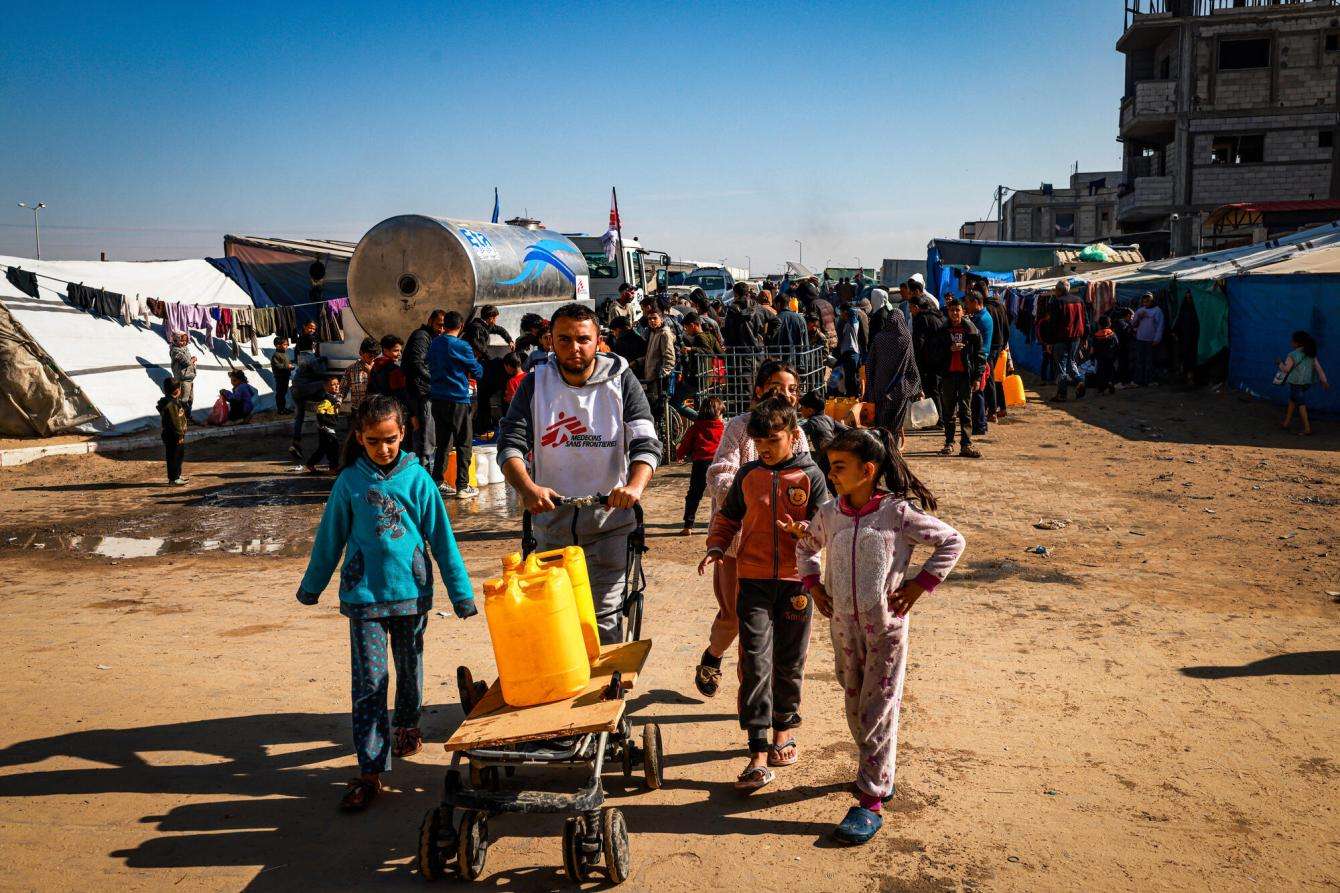
MSF is ready to scale up water distribution, but other types of shortages stand in the way, such as the limited number of trucks allowed into Gaza carrying aid and fuel. “The main challenge we face in distributing water is the lack of fuel to pump and transport it,” said Al-Khishawi. “The second is the lack of proper roads for our trucks to drive on, because there are tents even on the asphalt. The third is that there are no water distribution points—even those have been bombed. Water pipes, streets, and [all kinds of] infrastructure have been destroyed.”
MSF continues to call for a sustained ceasefire, which is the only way for Palestinians in Gaza to return to their homes. We also call for the flow of humanitarian aid into Gaza to be restored and scaled up to ensure people have access to essential needs such as food, water, and health care.
